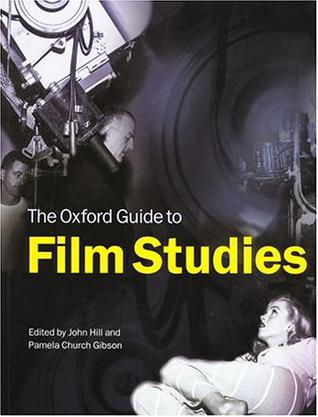目录
Table of Contents
List of Contributors
List of Illustrations
General Introduction
PART 1. CRITICAL APPROACHES
1. Introduction to film studies, Richard Dyer
Studying the film text
2. The film text and film form, Robert P. Kolker
Readings: Written on the Wind, Robin Wood
Citizen Kane, Peter Wollen
3. Film acting, Paul McDonald
4. Film costume, Pamela Church Gibson
5. Film music, Claudia Gorbman
The film text: theoretical frameworks
6. Classic film theory and semiotics, Antony Easthope
7. Formalism and neo-formalism, Ian Christie
Reading: Poetry and prose in cinema, Viktor Shklovsky
8. Impressionism, surrealism, and film theory, Robert B. Ray
9. Film and psychoanalysis, Barbara Creed
10. Post-structuralism and deconstruction, Peter Brunette
11. Film and postmodernism, John Hill
Film text and context: gender, ideology, and identities
12. Marxism and film, Chuck Kleinhans
Reading: The political thriller debate, John Hill
13. Feminism and film, Patricia White
Readings: Rebecca, Mary Ann Doane
Rebecca, Tania Modleski
14. Gay and lesbian criticism, Anneke Smelik
15. Queer theory, Alexander Doty
16. Pornography, Laura Kipnis
17. Race, ethnicity, and film, Robyn Wiegman
18. Film and cultural identity, Rey Chow
Film text and context: culture, history, and reception
19. Film and history, Dudley Andrew
20. Sociology and film, Andrew Tudor
21. Cultural studies and film, Graeme Turner
22. Film audiences, Jostein Gripsrud
23. Hermeneutics, reception aesthetics, and film interpretation, Noel King
PART 2. AMERICAN CINEMA AND HOLLYWOOD: CRITICAL APPROACHES
American cinema: history, industry, and interpretation
1. American cinema and film history, John Belton
2. History and cinema technology, Duncan Petrie
3. Hollywood as industry, Douglas Gomery
4. Early American film, Tom Gunning
5. Classical Hollywood film and melodrama, E. Ann Kaplan
Readings: Casablanca, Richard Maltby
Casablanca, Rick Altman
6. Post-classical Hollywood, Peter Kramer
Critical concepts
7. Authorship and Hollywood, Stephen Crofts
Reading: John Ford, Peter Wollen
8. Genre and Hollywood, Tom Ryall
Reading: Body Genres, Linda Williams
9. The star system and Hollywood, Jeremy G. Butler
Politics and society
10. Hollywood film and society, Douglas Kellner
Reading: Hollywood and ideology, Robert B. Ray
11. Film policy: Hollywood and beyond, Albert Morgan
12. Hollywood and the world, Toby Miller
PART 3. WORLD CINEMA: CRITICAL APPROACHES
Redefining cinema: international and avant-garde alternatives
1. Concepts of national cinema, Stephen Crofts
2. Modernism and the avant-gardes, Murray Smith
3. Realism, modernism, and post-colonial theory, Ashish Rajadhyaksha
Redefining cinema: other genres
4. The documentary, John Izod and Richard Kilborn
5. The animated film, Michael O'Pray
European cinema
6. Issues in European cinema, Ginette Vincendeau
CASE-STUDIES: MOVEMENTS, MOMENTS, AND FILMMAKERS
7. The avant-gardes and European cinema before 1930, Ian Christie
8. Italian post-war cinema and Neo-Realism, Simona Monticelli
9. The French Nouvelle Vague, Jill Forbes
10. New German Cinema, Ulrike Sieglohr
11. East Central European cinema, Daniel J. Goulding
12. European film policy and the response to Hollywood, Armand Mattelart
13. Directors and stars
(a) Jean Renoir, Keith Reader
(b) Ingmar Bergman, Chris Darke
(c) Chantal Akerman, Cathy Fowler
(d) Pedro Almodovar, Jose Arroyo
(e) Luc Besson, Susan Hayward
(f) Brigitte Bardot, Ginette Vincendeau
Anglophone national cinemas
CASE-STUDIES
14. British cinema, Andrew Higson
15. Ireland and cinema, Martin McLoone
16. Australian cinema, Elizabeth Jacka
17. Canadian cinema, Will Straw
World cinema
18. Issues in world cinema, Wimal Dissanayake
CASE-STUDIES: CINEMAS OF THE WORLD
19. Indian cinema, Ashish Rajadhyaksha
Reading: Popular Hindi cinema, Rosie Thomas
20. Chinese cinema, Berenice Reynaud
21. Hong Kong cinema
(a) Discovery and pre-discovery, Stephen Teo
(b) China and 1997, N.K. Leung
22. Taiwanese New Cinema, Kuan-Hsing Chen
23. Japanese cinema, Freda Freiberg
24. African cinema, N. Frank Ukadike
Reading: Hyenas, Richard Porton
25. South American cinema, Julianne Burton-Cavajal
Redefining cinema: film in a changing age
26. Film and changing technologies, Laura Kipnis
27. Film and television, John Hill
List of Picture Sources and Readings
Index of Selected Names and Film Titles
【展开】
【收起】
内容简介
Comprehensive, authoritative, and unique, The Oxford Guide to Film Studies is the up-to-date critical volume on the theories, debates, and approaches to the study of film. A host of international experts provide an overview of the main disciplinary approaches to film studies, an explanation of the main concepts and methods involved in film analysis, a survey of the main issues and debates in the study of film, and critical discussion of key areas.The Guide features: * Comprehensive coverage suitable for any course on cinema or film studies * Organized into three sections: Approaches; Hollywood and the World; World Cinema * An emphasis throughout on critical concepts, methods, and debates * Specially commissioned chapters on such varied topics as film music, the Hollywood Star System, and the idea of national cinema * Coverage dedicated to important new areas in film studies: gay and lesbian criticism, postcolonial theory, audience studies, post-classical Hollywood cinema, and cultural studies * Chapters discussing exciting new developments in classical topics, such as Early Hollywood Cinema, Film History, and the avant-garde * Illustrated throughout, and complete with 'readings' designed to demonstrate the variety of theoretical approaches, chapter headings and summaries, guides to further reading, and 'highlight' quotes With its uniquely comprehensive coverage, The Oxford Guide to Film Studies is an indispensable aide and reference source for the student of film and media, and anyone interested in the study of cinema.
【展开】
【收起】
下载说明
1、追日是作者栎年创作的原创作品,下载链接均为网友上传的的网盘链接!
2、相识电子书提供优质免费的txt、pdf等下载链接,所有电子书均为完整版!
下载链接
